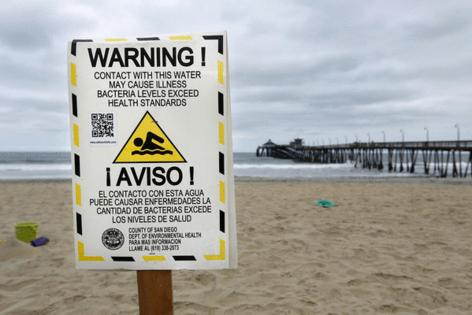San Diego County formally asks state to investigate cross-border sewage crisis and its impact on public health
Published in News & Features
SAN DIEGO — San Diego County is officially calling on state and federal public health agencies to investigate the effects of cross-border pollution on the region.
Dr. Wilma Wooten, the county's public health director, submitted a "public health request" to the U.S. Centers for Disease Control and Prevention (CDC) and the California Department of Public Health (CDPH) on Tuesday.
The move was taken at the direction of county Chairperson Nora Vargas, whose District 1 includes the communities directly affected by sewage and toxic chemicals from Tijuana. Vargas sent her own letter to CDC Director Mandy Cohen underscoring what she wanted the public agency to do.
"Specifically, I urge the CDC to examine the prevalence of contaminants in the air, water and soil of these communities and their connection to community-reported increases in gastrointestinal issues and other symptoms," Vargas said in the letter.
State and federal agencies did not respond to requests for comment.
The request marks an important step in getting the CDC to step in. Calls from Imperial Beach Mayor Paloma Aguirre and several San Diego area members of Congress asking the national public health agency to look into the festering situation at the border have been turned aside.
The CDC said for the agency to offer epidemiological assistance, or Epi-Aid, it must first be invited by local public health authorities in coordination with state authorities.
Such a request would enable "rapid, short-term (1–3 weeks), generally onsite, technical assistance by (Epidemic Intelligence Service) officers and other CDC subject matter experts," its website says. "The focus of an Epi-Aid investigation is to assist partners in making rapid, practical decisions for actions to control and prevent the public health problem."
Until now, the county had limited its intervention to surveillance because it had not seen any increases in reported infections expected from exposure to polluted water. However, not all infections are required to be reported to the public health system.
San Diego researchers and physicians believe a non-traditional approach is necessary to better understand the issue given that no private or public investigations have been done. They recently formed a task force to understand if there are any links between the symptoms people are feeling and water and air contamination.
...continued
©2024 The San Diego Union-Tribune. Visit sandiegouniontribune.com. Distributed by Tribune Content Agency, LLC.







Comments